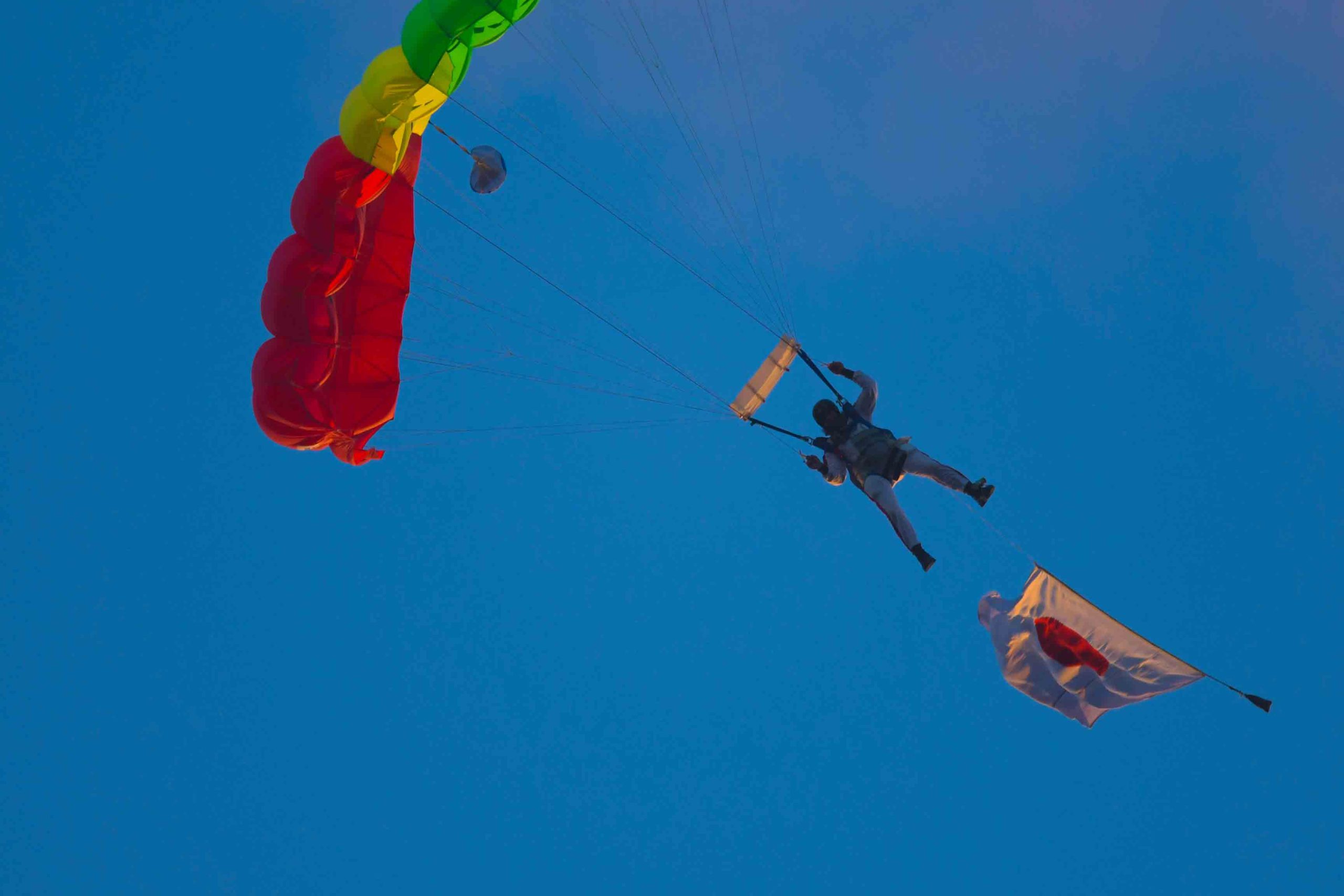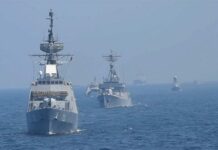The Pakistan Navy initiated a naval exercise involving 50 participating nations on 10 February 2023. Known as ‘Aman 23’ (Aman mean ‘’peace’ in Urdu), the exercise is the eighth such manoeuvre, which has been held every two years since 2007. In 2011 28 countries participated in Aman, while in 2017 there were 35 countries involved. Despite the Covid pandemic, 43 countries participated in 2021.
The exercise was divided into two phases, with the port phase (10-12 February) including socio-cultural activities as well as seminars and working groups to plan operations at sea, while the maritime phase (13-14 February) was scheduled to include a section on counter-piracy in addition to the usual activities such as live firing, weapon deployment exercises and demonstrations, and search-and-rescue manoeuvres.
Up to 14 February special forces from the participating nations were also due to work through the basics of maritime warfare alongside the participating naval and air forces, with the Pakistan Navy Special Services Group (SSG) scheduled to demonstrate its counter-terrorism capabilities.
According to official announcements, the objectives of the Aman exercises are to promote regional co-operation and stability and enhance interoperability. In addition, Aman 23 pursues joint action against terrorism and criminal activity in the maritime domain such as piracy.
Details about the participating nations and units were not made public, although China is certainly a participant.
Coinciding with ‘Aman 23’, the Pakistan International Maritime Expo and Conference (PIMEC) is being held in Karachi. Under the auspices of the Ministry of Maritime Affairs, this aims to bring together stakeholders and companies from the maritime sector to promote the development of the sector in Pakistan and foster the ‘blue economy’.
In an interview with China’s English-language Global Times newpaper Pakistan Navy Chief of Naval Staff Admiral Muhammad Amjad Khan Niazi highlighted the importance of China to Pakistan. With its “maritime credentials, the participation of the Chinese maritime sector in the first PIMEC provides an ideal opportunity for local and international companies to explore opportunities for co-operation to encourage investment in Pakistan’s maritime sector”, the admiral was quoted as stating.

Beijing and Islamabad have maintained close exchanges in recent years. The navies work more closely together than the physical distance between the two countries would suggest. This includes joint exercises as well as pronounced armament co-operation; the Pakistani Navy has procured four modern Type 054A/P frigates from China.
The port of Gwadar in western Pakistan was also developed into a deep sea port by China and is becoming part of the China-Pakistan Economic Corridor (CPEC) as part of China’s ‘Silk Road’ initiative.
In a press conference on the ‘Aman 23’ exercise Admiral Ovais Ahmed Bilgrami, Commander, Pakistan Fleet (COMPAK), elaborated on the three factors on which Pakistan’s maritime interests are based: “First, our extraordinary dependence on the seas for trade; second, the implementation of the CPEC project; and third, our strategic location on the global energy superhighway,” he said.
With initiatives like the ‘Aman’ manoeuvres, the Pakistan Navy is looking to express its philosophy of co-operative maritime security. “Exercise ‘Aman’ is thus an expression of this accepted reality of collectively countering maritime threats through co-operation and mutual support, and provides tremendous opportunities for participants to shape and practise the contours of such a collective response,” said Adm Bilgrami.
As well as bilateral and multilateral exercises, the Pakistan Navy also participates in United Nations (UN) peacekeeping missions such as the UN-mandated Combined Maritime Task Forces 150 and 151.
Hans Uwe Mergener








